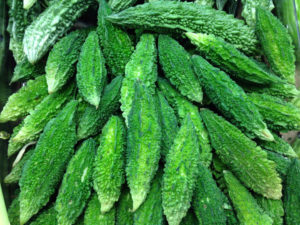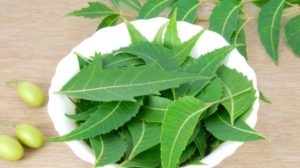Health benefits of bitter foods
Not all that is bitter is bad – some foods and spices with the pungent flavour comes with components for good health.
Reports suggest that of all the flavours that a human’s palate can taste, the most difficult to savour is bitterness. But it is also these bitter foods, the ones commonly used in an Indian kitchen, that are packed with health benefits.
Most bitter foods have a tendency to cleanse and detoxify the liver, restoring this vital organ’s acid-alkali balance. They also help a human body in digestion and detoxification. Discover these foods and spices and the goodness they bring to table.
Karela or bitter gourd
Karela, as bitter gourd is called in Hindi, is an excellent source of vitamins B1, B2 and B3, and also of magnesium, phosphorous, zinc, and fibre. Also rich in iron, it contains twice the beta carotene of broccoli, twice the calcium of spinach, and twice the potassium of banana. Consumed as a veggie or juice, karela has a host of health benefits. It helps in maintaining blood sugar levels, lowers bad cholesterol levels, cleanses the liver, boosts immunity, and is great for eyes, hair and skin.
Methi or fenugreek

Kneading finely chopped fenugreek leaves into dough for making bread, is a popular manner of consuming methi in north India
Methi or fenugreek is consumed in diverse forms and has many a health benefits. The leaves can be cooked along with veggies and also kneaded into dough to make sumptuous and wholesome breads. They can also be dried and used as herbs or seeds for garnishing or raw consumption. Methi contains galactomannan, a component that helps in keeping the heart healthy, and also aids controlling diabetes. Rich in fibre, methi also helps in detoxifying and keeping ones gut healthy.
Haldi or turmeric

When used as a beauty agent, haldi should be used sparingly as it tends to leave behind its yellow colour
Having been used for generations in India, haldi or turmeric is added into most preparations including vegetables, pulses, rice and even in warm milk. Known for its antiseptic and antibacterial properties, it is used to help heal wounds and keep infections at bay. It is also used as an anti-ageing and beauty ingredient. With strong antioxidant properties that inhibit free radical production, and control ageing by preventing the damaging of cells, haldi is added in a number of home-made face scrubs and masks as well.
Jamun or black plum
A popular fruit in India – consumed as a snack or squashed out for juices and milkshakes, jamun or black plum is not completely bitter. It is savoured for its bitter-sweet flavour. Native to India, this deep purple colour fruit is rich in antioxidants that fight free radicals in the body and protect against ailments such as hypertension and diabetes. Jamun helps convert starch into energy, thus keeping a check on diabetes by working on ones blood sugar levels.
Neem or Indian lilac
A unique tree whose leaves have over 130 different biologically active compounds, neem or the Indian lilac is a medicinal herb commonly used for many treatments. Having its mention in various remedies in Ayurveda and traditional treatments that date back to more than 4,000 years, neem is an anti-bacterial, anti-viral and an immunostimulant. Its leaves are a store house of healing properties, curing eye troubles, ear ailments, scalp problems, skin disorders and also aiding treatment of cancer. Neem leaves are awfully bitter yet people consume them first thing in the morning. The leaves are soaked in warm water, which is consumed on an empty stomach. People also use neem twigs as a substitute for brushing . The secretions from the twig help fight germs, bad breath, treat swollen gums, give whiter teeth and also help maintain the alkaline levels in saliva.
The goodness of eating bitter foods has also found mention in Ayurveda, the ancient Indian science of medicine. “Foods with a bitter taste increase the body’s vata element (moves toxins), and decrease the pitta (fire) and kapha (water) elements. The vitamins and minerals in these vegetables also nourish and revitalise the liver,” wrote a health expert for a popular English weekly.












